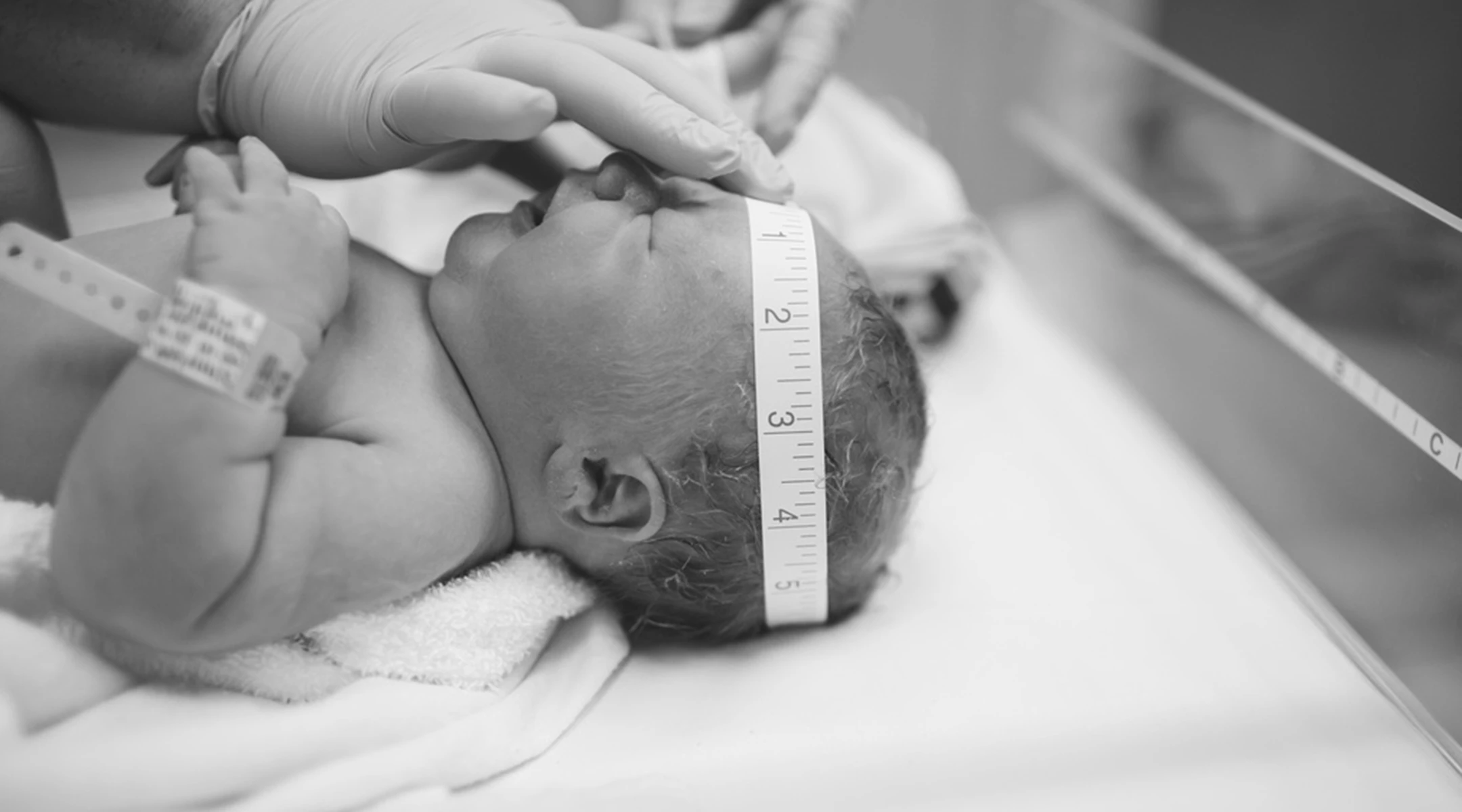Ultimate Guide to Newborn Growth Spurts: The First Year Trends
Share

Worried about why your infant is not satisfied even after the usual amount of feeding? Worry not, as your child might be going through the first of five newborn growth spurts. Just when you feel that you have set a constant pattern of feeding time and limit for your newborn, things might switch back to chaos again!
The reason for such a sudden shift in behavior is that your child is experiencing quick physical growth when it comes to height and weight.
This is the reason experienced parents advise you to look out for sudden surprises from your baby. The quick jumps to irritable and insomniac behavior and sudden rollback to normal might get you all confused.
In this article, we are going to see everything about baby growth spurts and what to expect during this timespan.
Newborn Growth Spurts

Don’t be surprised if you feel like your baby gained some noticeable weight overnight. It is something all parents across the globe go through. Right after birth, it is natural for babies to lose one-tenth of their body weight in the first 5 days.
Right after that, they will start gaining weight. During the first year of growth, babies tend to go through a set of dramatic physical changes that boost their growth.
It has been found that during the first 12 months after their birth, babies can gain triple their body weight and also grow up to 10 inches in length. It is natural that you will be analyzing the growth of your newborn.
A gradual increase in his or her weight is normal. But as soon as an infant hits the first growth spurt… Boom!
The baby will surprise you by outgrowing his limits as he grows up! During the first four months, you can also see a visible change in the development of your baby’s head.
Having said that, a normal growth rate is also very common in infants. Only if they hit the growth spurt will things move a lot faster.
Growth Spurts vs. Developmental Milestones

Growth spurts and Developmental milestones are two different terminologies you should learn about first while dealing with a baby’s growth pattern.
Growth spurts are the physical changes your baby will go through during intermittent stages, especially during the first year. During this time, the length, weight, and height of your baby will develop.
Developmental milestones are a term used to indicate the cognitive and language skill development your baby will acquire during his or her growth. They also include social skills, motor skills, emotional skills, and motor skills.
Your baby will start reaching all these developmental milestones during different stages of his or her growth.
When Will Babies Go Through Growth Spurts?

Being a careful and curious parent, you might have often wondered when the newborn growth spurts would hit your baby. According to Lisa M. Asta, a renowned pediatrician from California, every baby has a standard growth spurt timeline. The first growth spurt for a baby will be during the first 5 to 10 days after birth.
This is the time when the baby is fed breast milk and gets used to the milk supply. During this time, most babies will start to gain weight.
The second growth spurt in infants is expected to happen between the third and sixth weeks after birth. It is very normal for your baby to experience more growth spurts during the third, sixth, and ninth months.
Because of these intermittent growth spurts, the baby’s physique will start to change in the first year. It sounds like too much to happen in a short time span, but you don’t have to worry as it is manageable, and half the time, you won’t even notice the spurts.
Signs of Newborn Growth Spurts

One thing you should accept and understand is that every child grows in a different way. Hence, the growth spurt is not expected to happen in babies. Even though the spurts happen in the blink of an eye, you can always look for signs that can help you know your child is suddenly developing his or her physique in a quick way. Below are certain things you can analyze to identify growth spurts in your child.
- Increased Hunger: Just when you think you have mastered the right amount of feeding for your baby to be satisfied, the patterns will change. Your baby might start to crave more food and act irritated even after finishing a full bottle. Constant attempts to get fed by the mother whenever the baby gets a chance are also signs to look for.
- Being Fussy: Your baby might keep crying on and on during the daytime. The most common reason for this is a lack of rest and sleep. Whoever doesn’t get an ample amount of food will obviously feel tired and hungry, which results in insomniac nights. This is not caused by a lack of care from parents but by sudden growth spurts.
- Unusual Sleep: Are you feeling happy that your baby is sleeping peacefully as and when required without creating much fuss? Hold on, as you are in for a surprise soon. When the growth spurt hits, your baby will stop following the usual patterns, which include sleeping hours. It is normal for your baby to stay up all the time during his or her usual sleep hours and demand food instead.
Having said all this, it is to be noted that some babies start to sleep more often than before during growth spurts. Sometimes, it is said that even mothers can feel the baby’s growth spurts.
When you feel excessively hungry or thirsty, you are supposed to eat more food to keep your energy levels up. It is your body trying to tell you that your baby is going through a growth spurt, and you are supposed to keep up to provide ample amounts of food for the baby.
Handling Newborn Growth Spurts

Growing up with the growth spurts of a baby isn’t difficult, but a lack of knowledge might make you unnecessarily worried. During growth spurts, your baby will be more demanding. You will need to give your baby all the attention in the world and also more food during this time. This also means that you will have to take extra care of yourself. When a mother has to feed extra, she will have to eat and drink extra too.
Some might find it hard to keep up with the baby’s needs during the spurts. Experts suggest not always caving into the baby’s needs. You can feed him multiple times as required during the day.
During the day, your baby is supposed to be active and moving. During the night, it is suggested not to feed the baby much. Giving him or her an extra meal during the off hours might disturb his or her sleep pattern. Getting an ample amount of rest is very important for a baby to remain active all the time.
Frequent feeding will increase the milk supply in a mother’s body. According to pediatricians, it is not always good to feed the baby a lot of milk. It has been noticed that a good number of parents around the globe insist on always feeding their baby a full bottle without considering the baby’s requirements.
A simple way to do this is to observe the baby. Usually, a baby will turn their heads in the other direction when they are done getting enough food. This is a clear indication that they are done, and hence there is no need to continue feeding.
Final Word
It is very common for parents to get worried while handling their babies. Even the slightest changes in your baby might startle you. As most of the time, this happens due to a growth spurt. You don’t have to worry.
We hope this article was helpful in helping you learn more about newborn growth spurts and that you are now ready to handle the situation in a better way. There might be instances when you notice a deviation in your baby’s average growth patterns. If you feel like your baby is gaining excess weight, this is usually due to excessive feeding. If your baby is underweight, remember that it doesn’t mean the baby isn’t growing.
You only have to focus on helping the baby by providing more food and care whenever it is demanded. If you are too worried due to a growth pattern deviation, don’t try to manage and interpret everything alone.
You can always seek the help of an expert to get your doubts cleared and make sure that your baby is healthy and well.
Frequently Asked Questions
When Do Babies Have Growth Spurts?
The usual intervals for a baby to experience growth spurts are during the first 7–10 days. Then later, after 2-3 weeks, 4-6 weeks, 3 months, 4 months, 6 months, and 9 months, Remember that your baby can’t read a calendar. Hence, the timing of spurts can always change.
How Can I Manage My Baby’s Growth Spurts?
You should take an ample amount of food and water. Always be available for your baby and nurse them when needed. Surround yourself with soothing images or imagine a relaxed situation while feeding your baby.

















